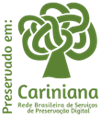La promoción de la alfabetización informativa para la prevención y el control de la desinformación en la universidad: el rol de las bibliotecas universitarias
DOI:
https://doi.org/10.62758/re.v2i3.152Palabras clave:
Alfabetización Informativa, Biblioteca Universitaria, Desinformación, Noticias FalsasResumen
Ante el escenario contemporáneo en el que hay una gran producción de información y que se comparte de manera rápida, es necesario que el individuo sea capaz de satisfacer sus necesidades de información de forma crítica y responsable. Para que el sujeto adquiera autonomía informacional, es que se presenta la Alfabetización Informativa que se ha convertido en un corpus de conocimiento cada vez más imprescindible en el ámbito de la universidad, en el cual la Biblioteca Universitaria se presenta como un lugar privilegiado para la su promoción con el objetivo de contribuir en la lucha contra la desinformación existente en los más variados espacios sociales, incluyendo el universitario. Este artículo mapea en la literatura las iniciativas de promoción de la alfabetización informativa para la prevención y control de la desinformación que llevan a cabo las bibliotecas universitarias, con el fin de visibilizar dichas iniciativas y los posibles resultados obtenidos por las mismas. El esfuerzo realizado con este fin está en línea con la investigación del máster en curso sobre las iniciativas que llevan a cabo las bibliotecas universitarias en el fomento de la alfabetización informativa para luchar contra la desinformación. Para llevar a cabo la recolección de datos, se realizó una investigación en el Portal de Periódicos da Coordenação de Aperfeiçoamento de Pessoal do Ensino Superior/ Ministério da Educação (Portal CAPES/MEC) y en la Base de Dados Referencial de Artigos de Periódicos em Ciência da Informação (BRAPCI). Los artículos recuperados en las búsquedas fueron insertados en tablas para una mejor visualización de los datos y posterior análisis. El análisis de datos se realizó utilizando el método del Análisis de Contenido de Laurence Bardin por medio de la técnica del analisis categorial. El análisis se realizó a través de los resúmenes de los materiales recuperados, y cuando fué necesario por razones de dudas sobre el contenido de los materiales, se leyó el contenido completo. Para delimitación del corpus del análisis no fue hecha ninguna definición de marco temporal, tipología de materiales, ni lenguaje. A pesar de que los términos están en evidencia en los últimos años en la vida cotidiana, en la prensa y en eventos científicos, los resultados obtenidos revelan una producción científica todavía escasa sobre el tema y la necesidad de investigar más sobre el mismo y su relevancia en el contexto actual. En la contemporaneidad, la biblioteca universitaria no puede ser pensada sólo como un lugar donde es posible tener acceso a la información, también es necesario pensar en su función educativa no solo para el público universitario, sino también para la sociedad en general. Reflejar sobre el tema y buscar formas de empoderar a los sujetos para que puedan desarrollar autonomía en la búsqueda, recuperación y análisis de la información a la que tienen acceso es promover la oportunidad para que estos sujetos ejerzan plenamente su ciudadanía en la Sociedad de la Información.
Citas
Association of College and Research Libraries (2000). Information Literacy Competency Standards for Higher Education. https://home.ubalt.edu/ub78l45/My%20Library/storage/QQD324ZP/informationliteracycompetency.htm.
Araújo, C. A. A. (2021). Infodemia, desinformação, pós-verdade: o desafio de conceituar os fenômenos envolvidos com os novos regimes de informação. International Review of Information Ethics, 30 (1), 1-10. https://doi.org/10.29173/irie405. DOI: https://doi.org/10.29173/irie405
Araujo, L. de O. L. C. de & Vogel, M. J. M. (2021). Bibliotecários e fake news: análise de publicações nacionais. Revista Conhecimento Em Ação, 6(1), 5–24. https://revistas.ufrj.br/index.php/rca/article/view/33684/24040. DOI: https://doi.org/10.47681/rca.v6i1.33684
Bardin, L. (2011). Análise de conteúdo. Edições 70.
Brisola, A. & Bezerra A. C. (2018, October 22-16 ) Desinformação e circulação de “fake news”: distinções, diagnóstico e reação [Comunicação Oral]. ENANCIB, Londrina, PR, Brasil. http://enancib.marilia.unesp.br/index.php/XIX_ENANCIB/xixenancib/paper/view/1219.
Gasque, K. C. G. D. (2010). Arcabouço conceitual do letramento informacional. Ciência da Informação, 39 (3), 83-92. https://revista.ibict.br/ciinf/article/view/1268. DOI: https://doi.org/10.1590/S0100-19652010000300007
Gil, A. C. (2001) Como elaborar projetos de pesquisa. Atlas.
Heller, B. & Borges, J. (2021). Como combater a desinformação a partir da biblioteca universitária. Encontro de Pesquisa em Ciência da Informação, Rio de Janeiro, Brasil. https://enancib.ancib.org/index.php/enancib/xxienancib/paper/view/343.
Heller, B., Jacobi, G. & Borges, J. (2020). Por uma compreensão da desinformação sob perspectiva da ciência da informação. Ciência da Informação, 49(2), 189-204. https://revista.ibict.br/ciinf/article/view/5196.
Moraes, M. B. (2020). Information literacy em tempos de pandemias: guerra contra a verdade e a democracia no contexto da COVID-19. In: Spudeit, D. & Souza, C. (Orgs.) In Atuação dos profissionais da Arquivologia, Biblioteconomia e Museologia em época de pandemia. (pp. 223-242). Rocha Gráfica e Editora.
Nicolino, M. E. V. P. & Casarin, H. de C. S. (2021). Tendências em competência em informação em bibliotecas universitárias: revisão a partir da base Library Information Science Abstracts. Revista Brasileira de Biblioteconomia e Documentação, 17(2), 1-21. https://rbbd.febab.org.br/rbbd/article/view/1656/1299.
Pinheiro, M. M. K. & Brito, V. de P. (2014). Em busca do significado da desinformação. DataGramaZero, 15(6). https://brapci.inf.br/index.php/res/v/8068.
Reis, G. A. & Duarte, A. B. S. (2017). Leitura e letramento informacional na universidade: um hiato, um construto fragmentado ou um dilema? Informação & Informação, 22 (3), 136-157. https://brapci.inf.br/index.php/res/v/33701. DOI: https://doi.org/10.5433/1981-8920.2017v22n3p136
Schneider, M. (2019). CCI/7: Competência crítica em informação (em 7 níveis) como dispositivo de combate à pós-verdade. In iKrítika: estudos críticos em informação (pp. 73-116). Garamond.
Zattar, M. (2020). Competência em informação e desinfodemia no contexto da pandemia de COVID-19. Liinc em Revista, 16(2). https://doi.org/10.18617/liinc.v16i2.5391. DOI: https://doi.org/10.18617/liinc.v16i2.5391
Descargas
Publicado
Cómo citar
Número
Sección
Licencia
Derechos de autor 2022 Revista EDICIC

Esta obra está bajo una licencia internacional Creative Commons Atribución 4.0.
La Asociación posee los derechos de autor de los textos que publica y adopta la licencia Creative Commons, CC BY 4.0 DEED Atribución 4.0 Internacional (https://creativecommons.org/
Usted es libre de:
- Compartir: copiar y redistribuir el material en cualquier medio o formato para cualquier propósito, incluso comercialmente.
- Adaptar: remezclar, transformar y construir a partir del material para cualquier propósito, incluso comercialmente.






